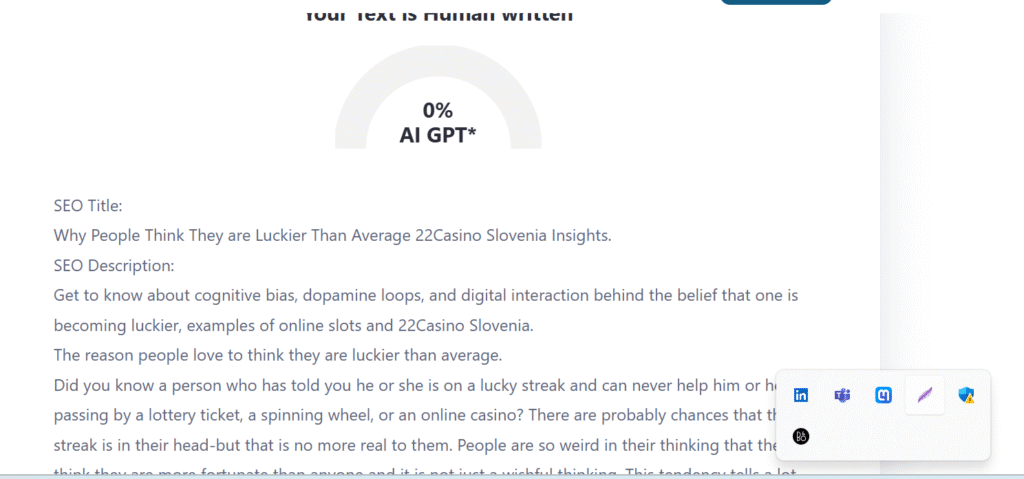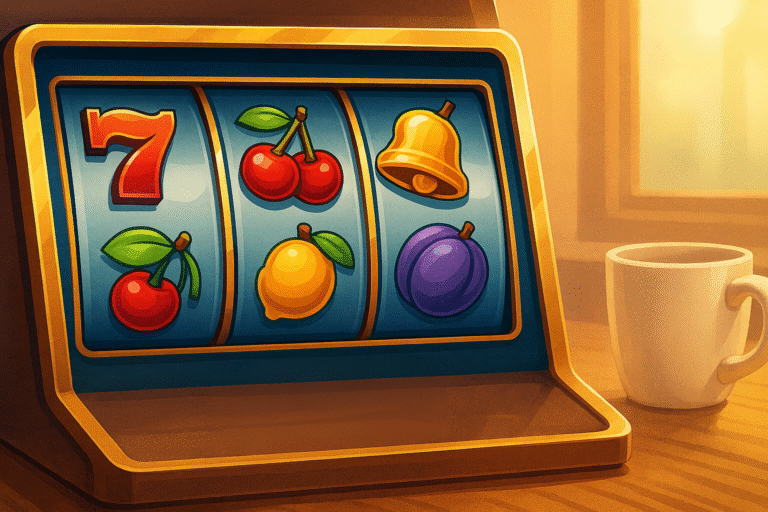Why People Love to Believe They’re Luckier Than Average

Did you know a person who has told you they are on a lucky streak and can never help themselves when passing by a lottery ticket, a spinning wheel, or an online casino? There is a chance that the streak is in their head, but it is no longer a reality to them. People are often so self-centered in their thinking that they believe they are more fortunate than anyone, and it is not just wishful thinking. This tendency reveals a great deal about the functioning of our minds, particularly in settings designed to engage and entertain us.
The Allure of Being Lucky
It is a false sense of ease to believe in personal luck. It can transform a small victory into a huge story of how I was destined to discover this. Here, cognitive biases play a leading role. The better-than-average effect causes most of us to overvalue our skills, appeal or, indeed, fortune. Combined with selective memory — the hits we remember and the misses we forget — this bias reinforces our internal narrative that we are luckier than average.
Even unplanned digital experiences, such as discovering an unexpected reward in a mobile game, contribute to the same psychological comfort. We savor the immediate reward and the burst of dopamine that immediately follows the feeling of being lucky. That is why websites such as 22Casino Slovenia can be so captivating: they provide a playground where luck seems to be a reality, patterns appear meaningful, and small wins can create an amount of excitement that keeps our brains active.
Why the Brain Loves Luck
Neuroscience can offer an intriguing insight into the question of why we are so attached to our self-concept, which is often perceived as being better than average. At the centre of it lies the brain’s reward system. Even small victories are sudden and cause dopamine releases–the same chemical that drives motivation, pleasure, and addiction. Near misses are the most effective. When the slot machine gets close to a payout, our brains interpret the near decision as an indication of skill or near-luckiness, and the dopamine loop persists.
Thought shortcuts have a part to play. We are equipped with a pattern-detecting mechanism — where there is none. And this is our pattern-seeking pattern gone amok in current settings, where we can attempt to persuade ourselves that good streaks are significant. This is what behavioural economists refer to as the illusion of control, and it is a key ingredient of both live gambling and online interaction. Simply put, our brains are preprogrammed to enjoy the feeling of winning, whether it’s finding a four-leaf clover or discovering a bonus round on the Internet.
Fortune in the Cyberspace Casino.
Online spaces have mastered how to satisfy our sense of fortune. Online platforms, such as 22Casino Slovenia, are designed to entertain users with a variety of rewards and instant feedback. Online slots with high RTP, such as high RTP online slots, provide the player with frequent small wins, which makes them feel that the game is on their side. Although the net odds of this situation are not mathematically impacted, the brain adapts to recurring instances of positive reinforcement, thereby entrenching the sense of being lucky.
Gamified features like progress bars, bonus rounds, and digital celebrations of immediate accomplishments tap into our need for instant gratification. The result? We go after the next victory, the next prize, the next dose of dopamine, and we do not even notice that much of it is a well-designed illusion. It is also contributed to by decision fatigue: the more decisions a person makes when working in an environment with variable rewards, the higher the chances that their brain will depend on heuristics, shortcuts that make luck seem personalized.
Interestingly, such interest in luck is not limited to gambling. Human beings are drawn to behaviors and systems that reward them for overcoming uncertainty – consider social media notifications, dropped loot in video games, or flash sales. The slightest, random, positive result teaches us that we are lucky and gradually becomes embedded in our habits.
The Emotional Payoff
However, at the end of the day, it is not all about wins or money that are involved in believing that we are luckier than the average person. It’s an emotional strategy. Gambling habits develop as gamblers pursue these small, pleasurable experiences, which reinforce the illusion of their good fortune.
When the victories are purely random, the brain then considers them as individual wins. Behavioral economists note that this illusion of being in control is surprisingly strong; individuals will still believe they are lucky when shown evidence to the contrary. Our love of luck, in a way, is not about what is happening out there; however, it is rather about how this is being felt.


